Saudi Arabia has introduced significant changes to its Iqama system in 2025, reshaping how foreign nationals are classified, how permits are issued and what employers must do to stay compliant. These updates are designed to bring the workforce structure in line with the Saudi Standard Classification of Occupations (SSCO) and strengthen links to Saudization.
Employers will need to take a close look at their current workforce; they’ll need to check that every role is classified correctly and adapt their internal processes to fit the new framework. Leap29 works alongside businesses to manage these transitions, helping them stay compliant and avoid unnecessary setbacks.
What Has Changed in the Iqama System?
The latest updates bring three major shifts:
- Skill-based categorisation: Foreign workers are now divided into three tiers – high-skilled, skilled and basic.
- Points-based system: High-skilled permits are assessed using a flexible scoring model that considers education, experience and salary.
- Digital compliance: Employers must use Qiwa and Mudad platforms to classify employees and submit records, with strict checks against SSCO standards.
These rules apply to all new hires from 3 August 2025. Requirements for Employers to reclassify their existing workforce in Qiwa came into effect from July 2025.
What are the New Skill Categories for Iqamas?
The framework groups foreign employees into three skill levels, each with different requirements and implications:
- High-skilled: Covers roles such as engineers, doctors and IT specialists. Eligibility is determined through a points system that balances a number of factors, including qualifications, work experience and salary (more on the Iqama points system below)
- Skilled: Includes supervisors, technicians and administrative staff.
- Basic: Applies to manual labour roles (with an age limit of 60).
This categorisation is aligned with SSCO and the Saudi Skills Taxonomy, ensuring that every job title matches a recognised standard.
The Points-Based Assessment
The introduction of a points-based system is one of the most significant changes. High-skilled permits are no longer granted based on a single qualification or salary benchmark. Instead, multiple factors contribute to the overall assessment, including education, experience, qualifications and salary.
Compliance Through Digital Platforms
The updated system is fully integrated with Qiwa and Mudad, the government’s workforce and payroll compliance platforms. To remain compliant, employers must ensure that employee records are correctly mapped to the SSCO.
Incomplete or misaligned information can trigger application issues. For businesses, this means that workforce planning, job offers and salary structures need to be set with compliance in mind from the outset.
Impact on Employers
The 2025 changes to the Iqama system give businesses more room to recruit high-skilled talent, but they also bring added responsibility. Employers must ensure that every role is classified correctly within Qiwa and that job titles, responsibilities and pay match the new framework.
If records are incomplete or not in line with the official classifications, applications can be delayed or even rejected. For companies relying on overseas hires, this can quickly disrupt projects and recruitment plans.
To reduce the risk of setbacks, employers should:
- Reclassify existing employees in Qiwa in line with the new skill tiers.
- Check role definitions and salaries to ensure they align with SSCO standards.
- Update hiring processes so new employees are entered correctly from the start.
- Plan ahead for Saudization targets, as some basic-level roles may face greater restrictions.
By tightening internal processes now, businesses can avoid compliance issues later and keep their workforce running smoothly.
Connection to Saudization
The new classification model is closely tied to Saudization. Basic roles, in particular, may see stronger nationalisation requirements. Employers will need to monitor how Saudization quotas shift in response to this system and consider how their recruitment strategies may need to adapt.
Want to learn more about Saudization? Need support? Read all about our Saudization Support Services here.
How Leap29 Can Help
Leap29 does not act as an Iqama sponsor, but we work with employers and their in-country partners to keep workforce management compliant and efficient.
Our support includes:
- Workforce Management services.
- End-to-end RPO for compliant recruitment.
- Project Recruitment services
- Contract Recruitment services
By taking a proactive approach, businesses can avoid unnecessary delays and continue building their teams with confidence.
Ready to manage your workforce under the new Iqama framework?
Leap29 helps employers in Saudi Arabia adapt to regulatory changes while keeping operations running smoothly. Contact our team on +44 (0) 20 8129 6860 or email ksa@leap29.com to discuss your workforce management needs.
FAQs
When do the new Iqama rules take effect?
Employers were required to reclassify existing employees on Qiwa from July 2025. The system applies to all new hires from 3 August 2025 onwards.
What happens if my workforce is not classified correctly?
Incorrect or incomplete records can lead to delays in Iqama processing, rejection of applications and potential compliance penalties.
How does the points-based system work for high-skilled employees?
The system considers a combination of education, experience and salary. Employers need to provide accurate, verifiable information across all three areas.
Are there age restrictions under the new system?
Yes. For roles classified as basic, the maximum age for foreign employees is set at 60.





